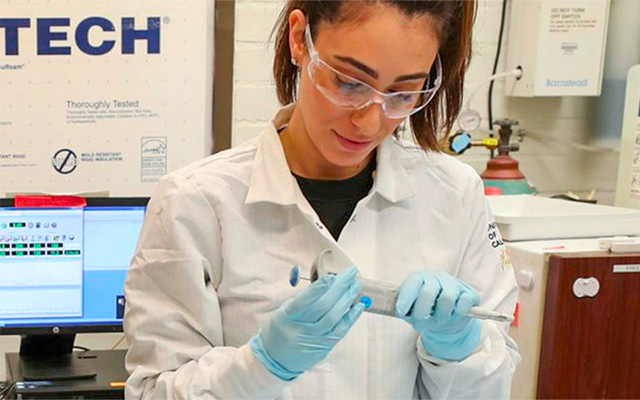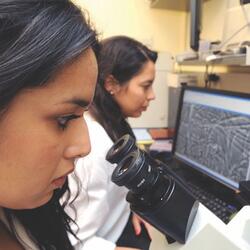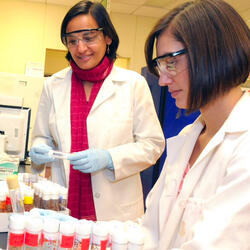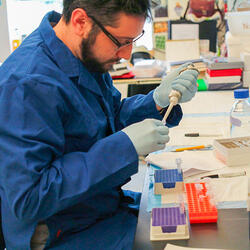The Cell, Molecular, and Developmental Biology major encompasses biological knowledge of development, homeostasis and disease at the molecular and cellular levels.
What makes Cell, Molecular, and Developmental Biology unique at UCR?
The CMDB major, while run by one department, includes faculty and courses from many life sciences departments. Many of the courses teach topics taken directly from current scientific literature. Students will be exposed to modern fields of research across multiple aspects of biological sciences. The major is just large enough to have a good cohort of students, but not large enough to feel lost. There's wide flexibility in the selection of courses aligning with your interests.
In general, what are Cell, Molecular, and Developmental Biology professors investigating?
Professors in the Cell, Molecular, and Developmental Biology major at UCR aim to understand the basis for normal development and disease states, as well as gene networks, gene regulation, neural systems, epigenetics, and immune system function.
Why Cell, Molecular, and Developmental Biology at UCR?
The CMDB major prepares students to pursue sought-after careers in health sciences or biomedical research. Students will learn the latest, cutting-edge methods, approaches, and sub-disciplinary topics within CMDB. In addition to requirement for laboratory courses in the major, independent research in active laboratories is encouraged. Further, the major offers instruction across a diverse range of systems and departments. Related majors enable students to transfer into or out of CMDB if they find that their interests change.
CMDB research at UCR
- Identifying anti-malarial compounds
- Aspects of bone development from stem cells
- Gene regulatory networks in development and disease
- Role of small RNAs and RNA-binding proteins in gene regulation
- Understanding the role of signaling molecules in brain development and function
- The role of cell adhesion molecules in neuron guidance in development
- Role of glial cells in the brain
- Morphogenesis of root tissue in plants
- Specification of cells from the shoot apical meristem in plants
What industries can I get into with a Cell, Molecular, and Developmental Biology degree?
- Medical profession, allied health care professions (nursing, optometry, pharmacy, etc.)
- Biotechnology sector, pharmaceutical industry (e.g. drug design and drug discovery)
- Academic research careers (MS and PhD)
- Science advocacy and journalism
What can I do with a Cell, Molecular, and Developmental Biology degree?
Students with degree in CMDB are able to pursue most career options available to students who have a Biology degree. Many of our majors seek the allied health care professions, including medicine, dentistry and pharmacy. Others become interested in pursuing research careers, for which they will apply to a CMDB-type graduate program as an M.S. or Ph.D. student. While others find careers in teaching at the high school or college levels.
What you should know
Are you interested in a major that can provide flexibility, both in the courses that you can take to align with your interests, but also allow you to change to other possible majors as your interests develop over time?
Advice for success
Plan your courses as soon as possible, be open-minded about different sub-disciplines within the major, and develop good study habits, including finding a peer group to study with.
Consider this
The life sciences, biotechnology and health care professions are some of the most exciting and fast-growing career choices available.




